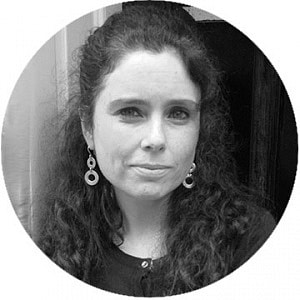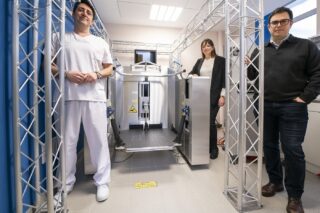Working in some of the highest profile, containment-critical environments in the world led clean air technology experts John Mumford and Guillaume Ribot to launch Aspida. The pair, who will be at Arab Health, from January 29 to February 1, 2024, were involved in Chernobyl’s confinement arch, as well as army chemical weapon dismantling facilities and biocontainment labs handling ebola and smallpox.
John Mumford, Export Director, explained:
“We also worked with the European Space Agency, looking at how we handle samples from Mars.”
While advising on the building of a highly infectious diseases ward in France, however, they realized the healthcare industry did not operate at the same levels as biosafety labs.
“We felt the healthcare industry was not ready for an epidemic or outbreak of a highly infectious disease. We thought something needed to be done and so Aspida was born.”
Safety and Patient Care
The company was launched in January 2019 and the pair had many ideas on systems for containing infectious patients but were still at the R&D stage when Covid-19 hit. He said:
“At that time we were still trying to convince people our systems were necessary—and they were saying: ‘But the last epidemic was the Spanish flu!’.”

(Credit: Aspida)


Post-Covid, however, the situation is very different and there has been great interest in France-based Aspida’s innovations. Mr. Mumford added:
“The idea was to draw from our previous knowledge and experience to bring bricks of technology together to create something pragmatically engineered for hospitals.
With chemical weapons or handling vials of deadly viruses, you are not treating a patient who may be coughing, sneezing, vomiting or even aggressive.
You have to be much more pragmatic about the highest level of safety you can achieve while maintaining the highest level of patient care.”


Aspida’s solutions include Pelta, a pop-open containment unit where patients can be treated safely while awaiting diagnosis of a possibly highly infectious disease. The Kairos is a mobile solution for transferring high-risk patients to suitable longer-term treatment units without breach of containment.
And Hoplite is a biosecure, deployable infrastructure capable of handling large numbers of infectious patients for long-term care.
Negative and Positive Pressure
It is the Agema, however, designed for the conversion or creation of contained intensive care rooms, that is being showcased at Arab Health. Mr. Mumford explained:
“In hospitals, there are very few pressurized bedrooms or critical care rooms for either airborne infections or patient isolation. When you have an airborne infection risk—a patient with Covid, TB, MERS-CoV etc.— you must contain it within the bedroom. This is a negative pressure bedroom.
When you have a patient who is immunocompromised—a burns victim or cancer patient with no immune system—then you put them into a positive pressure bedroom.
You don’t want anything to go into that bedroom in a non-controlled way because the patient could catch any virus and die from it. But having this kind of technology is very expensive and constraining in terms of infrastructure.
It requires the installation of big air handling units in a technical plant; large ducts in rooms and filtration systems; it is very high cost and complex.
They tend not to build many and when they do they put them together and call it an Infectious Diseases Department.”

Converting Any Room
The aim with Agema is to bring the complexity and technology right down to room level. A piece of equipment, similar in appearance to a large air-conditioning unit, is installed inside and outside a room. Mr. Mumford said:
“It takes less than a day to install and can achieve either positive or negative pressure in that room. You can convert a room on any ward, in any hospital, at a fraction of the cost of doing it the traditional way.”
A pregnant woman with TB, for example, could remain in a maternity unit and a heart patient with Covid could stay in a cardiac unit. They would not need to be transferred to an infectious diseases department without the other specialist medical knowledge and equipment they required.
“It allows hospitals to think very differently about how they deal with either infectious patients or immunocompromised patients.”
Launched in the summer of 2023, Agema has been installed in a hospital in Australia and within the coming months will be fitted in four hospitals in France. Mr. Mumford added:
“The potential for Agema is absolutely huge and our targets are to be selling hundreds of them per annum.
Biosafety is not the job of the healthcare worker, they have bigger things to worry about—we will take care of the safety and they can take care of saving lives.”
![[Arab Health] Aspida’s Hospital Solution for the Highest Level of Biological Protection](/wp-content/uploads/sites/9/BiologicalProtection-iStock.jpg)










